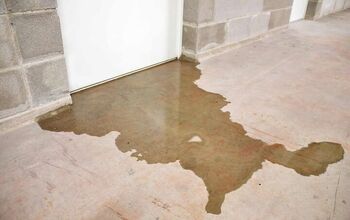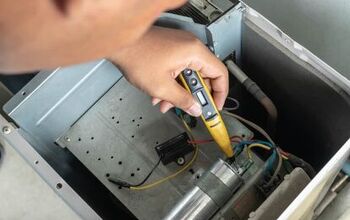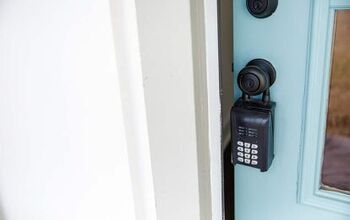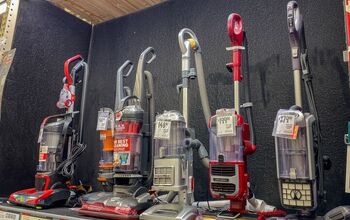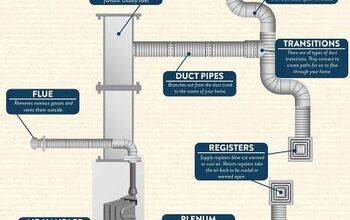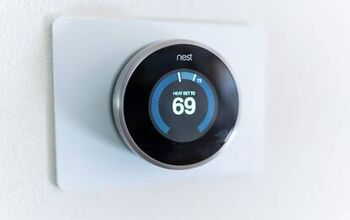Can A Propane Furnace Be Installed In A Basement?

Proper planning is critical when installing appliances. If you rush the initial planning, you risk creating more problems in the future. Especially when it comes to propane furnaces, your initial blueprint is essential. There are many reasons to chooses a propane furnace. Some people don’t live close enough to town for natural gas. Others might be looking to replace an old propane furnace. Regardless, if you wonder which areas of the house are appropriate for installation, you’ve come to the right place.
Yes, it is safe to install a propane furnace in your basement as long as the installation is up to code. There are certain safety procedures and protocols that should be followed if you install a propane furnace in your basement. It is highly recommended that you hire a professional for this job.
We will give you both sides of this debate so you can make the safest decision for your situation.
Do You Need Gas Furnace or Forced Air Heating System Installers?
Get free, zero-commitment quotes from pro contractors near you.

Is it Safe to Install a Propane Furnace in Your Basement?
Some areas allow propane furnaces to be installed in basements, while others do not. You will need to check with your local jurisdiction to determine any regulations regarding propane furnaces. Here are some of the safety concerns cited by the areas that do not allow propane furnaces in your basement.
- Propane is denser than air and will pool in low areas
- You might not smell a leak
- No proper means of ventilation
Propane is Denser than Air
The propane density relative to the air is the first reported danger when installing a propane furnace in a basement. Think about a helium balloon floating high in the air. Propane is the opposite – it will actively sink. If propane started to leak in the basement, there would be no easy way for the propane to flow outside. This could cause a dangerous build-up of propane gas in your basement.
This issue doesn’t apply to above-ground basements, where the propane would still find its way outside.
You Won’t Be Able to Smell a Leak
Propane is naturally odorless. Artificially adding a rotten egg or skunk smell to the propane is one way to increase safety. If there’s a leak, you can smell it and get somewhere safe. However, if propane is pooling in your basement while you are upstairs, the propane could reach hazardous levels before you even know there’s a problem.
An inability to smell the propane could be a problem regardless of where you install the furnace. If your propane furnace is in a well-sealed room on the main floor level, you still might not smell a leak. Also, some people have a hard time smelling a propane leak. If you’re one of those people, make sure you have a robust ventilation and alarm systems in place.
Lack of Proper Ventilation
Basements tend to be dark and dank. Especially if you have an unfinished basement, there’s a concern that your basement is a hazard if there ever was a propane leak. This problem is a case by case issue. Some basements have better air-conditioning than others.
Basements can be a confusing area of the house. It’s best to consult your local building codes and regulations to determine what is and isn’t allowed in your basement.
Let’s look at some of the reasons to place a furnace in basements, and why many think it can be a safe option. If you’re looking to install propane, you may be interested in our article comparing the cost of propane vs. electric heat.
Propane Heaters are Safe to Place in Basements
A leak is terrible, whether it is propane or natural gas. Either way, regardless of the unit’s location, you must have the proper safety equipment in place.
More and more areas are allowing people to place propane furnaces in the basement. Modern building technology will enable us to install safe propane shut-offs and establish mechanical ventilation when necessary. Here are several reasons why:
- Some areas allow propane furnaces in basements
- Convenient location
- You can install safety features
Some Areas Allow Propane Furnaces in the Basement
Your local building codes will dictate whether you can place a propane furnace in your basement. Some areas will allow it. Others won’t. Usually, if you agree to install all appropriate safety features, your city’s inspectors will work with you. However, this varies by location.
You may even run into a situation where the fire inspector is okay with it, and the local building inspector is not. If this happens, you’ll need to have an open and honest conversation with each party.
The Basement is a Convenient Location for Propane Furnace
With proper safety features in place, the basement can be a nice place to store appliances—no sounds to wake you up at night, and no eyesores on your main level. The convenience of a basement is one reason that many people want to place their propane furnace there in the first place.
Safety Features For Propane Furnace in the Basement
Suppose you’ve checked with your local jurisdiction and are cleared to install a propane heater in your basement. In that case, you will need several safety features in place.
First, you’ll need an area clear of flammable objects. Any furnace should have 20-30 inches of clearance on all sides.
Second, install a carbon monoxide (CO) alarm. These alarms are cheap and life-saving. Carbon monoxide is a by-product of combustion. It is tasteless and odorless. Without a CO monitor, the only way you will know it’s there is from the symptoms (headache, nausea, feeling drowsy). And by then, it’s too late.
Third, you’ll need a ventilation and drain system. You’re going to need some way to “drain” the propane gas if a leak occurs. Where and how this ventilation system is installed will vary based on the layout of your home. It’s best to hire a professional to assess your basement and then give you a proper safety plan.
Finally, you’ll want to place an automatic shut-off valve. This will stop the propane from even entering the system if a leak is detected. When installing a propane furnace in the basement, these are precautions that must be taken.
If you are thinking about getting a propane tank, see this article – it will explain the pros and cons.
Do You Need Gas Furnace or Forced Air Heating System Installers?
Get free, zero-commitment quotes from pro contractors near you.

Related Questions
Assuming you’ve met all safety requirements and followed all local building codes, the best place is somewhere accessible but out of the way. If your basement has some living or recreational areas, you’ll want to avoid impeding that space. Some people build a freestanding room in their basement to help keep their appliances organized. Again, the best place is the one that follows all local codes and guidelines.
Can a Propane Water Heater Be Installed in a Basement?The guidelines for a propane water heater will mirror those of the propane furnace. The bottom line is this: some areas allow propane furnaces and water heaters in the basement, and some areas do not. You need to check with your local jurisdiction.
What are the Requirements for a Furnace Room?In general, you will need to have 30 inches of clearance on each side of the furnace. Also, you’ll need to be able to install adequate safety alarms and shut-off valves. Requirements vary by location. Some locations’ requirements even deviate from national codes – it is vital to figure out the standards for your area.

Gideon is a writer and hobby woodworker. He enjoys working on projects small and large-everything from crafting boxes and benches, to replacing carpet and landscaping a yard.
More by Gideon Zielinski



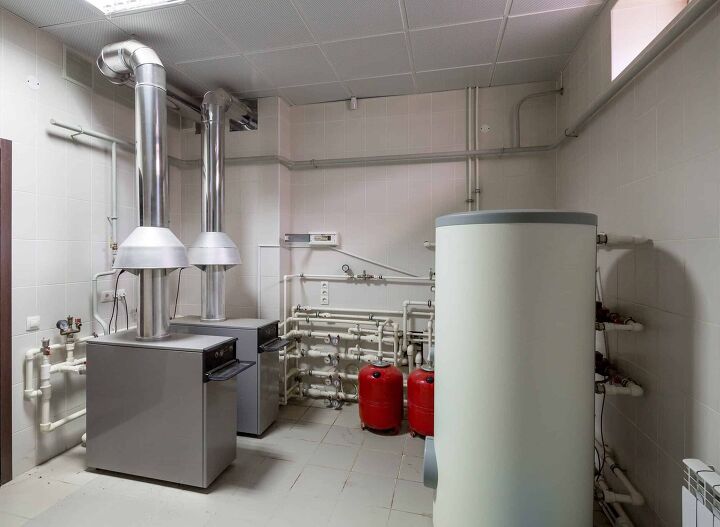






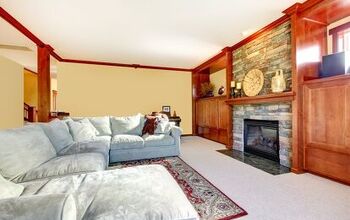
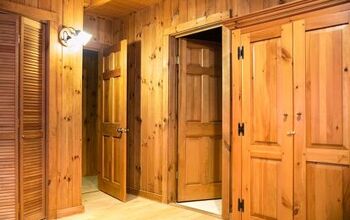
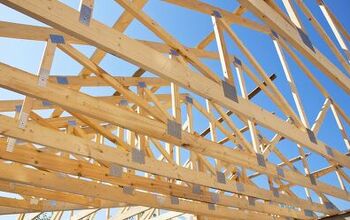
![The 5 Best Angle Grinders – [2022 Reviews & Buyer's Guide]](https://cdn-fastly.upgradedhome.com/media/2023/07/31/9071326/the-5-best-angle-grinders-2022-reviews-buyer-s-guide.jpg?size=350x220)

